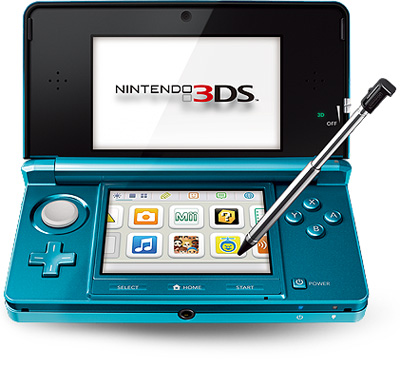Is 3D no longer captivating America? And can handheld devices reverse the trend?

You'd think with the non-stop onslaught of movies either made in or reworked into 3D, and the numbers of people apparently flocking to see them, that consumer demand for 3D TVs would keep on growing.
Not so, says a report published in the States: last year, interest in 3D TVs was keeping pace with the intent to buy TVs as a whole; now, there are signs consumer interest in 3D TVs is cooling.
The research, by NPD, shows that while demand for 3D TVs rose in the run-up the the Christmas/New Year holidays, it's now fallen back, with consumers giving the now-familiar reasons for their lack of interest: the price of 3D glasses, and the need to wear glasses in the first place, were cited by the majority of those not interested in 3D TV in the home.

But there's also a problem of price, and it seems to be a growing one: 38% reported that the high price of 3D TVs was putting them off when surveyed last September, but by this May the figure was up to 42%.
However, NPD says that a potential boom is coming in smaller devices, such as phones, tablets and games consoles, able to deliver 3D effects without glasses.
NPD says that awareness of such products rose from 5% last October to 13% this May, with the company's Ross Rubin saying that 'Growth in both awareness and purchase intent for the 3D video-game player market is a particular bright spot in this emerging arena.
'The Nintendo 3DS has a low price compared to a 3D television and doesn't require glasses to view the effect. These advantages will also hold true for 3D smartphones entering the market this year.'
Get the What Hi-Fi? Newsletter
The latest hi-fi, home cinema and tech news, reviews, buying advice and deals, direct to your inbox.

All of which may come as news to Nintendo, which has just announced worldwide price-cuts on its 3DS handheld, just five months after its launch.
From its current £270 rrp, or about £200 in street terms, the 3DS will fall to around £170, which should see it in the shops at £140 or even less.
The company, which has just turned in a first-quarter operating loss of just under £300m and cut its annual profit projection by over 80%, says that 'So that we will be able to create momentum for Nintendo 3DS and accelerate its market penetration toward the year-end sales season, when the lineup for the applicable software shall be enriched, the company has decided to make this markdown.'
In other words, the 3DS has underperformed, not least because the range of games available for it has been pretty poor, and something had to be done fast - especially as Super Mario 3D Land isn't due out until November, with Mario Kart 7 a month later.
However, a £100 price cut looks likely to leave the early adopters of the 3DS less than chuffed, so the company has also rolled out its Nintendo 3DS Ambassador Programme, allowing free downloads of 10 NES games and another 10 Game Boy/Game Boy Advance titles.
That research in the States may be suggesting handheld devices could be the breakthrough product for 3D, but the Nintendo experience, and cooling interest from TV buyers, suggest gains in this sector of the market look likely to be fairly hard-won.
Andrew has written about audio and video products for the past 20+ years, and been a consumer journalist for more than 30 years, starting his career on camera magazines. Andrew has contributed to titles including What Hi-Fi?, Gramophone, Jazzwise and Hi-Fi Critic, Hi-Fi News & Record Review and Hi-Fi Choice. I’ve also written for a number of non-specialist and overseas magazines.
